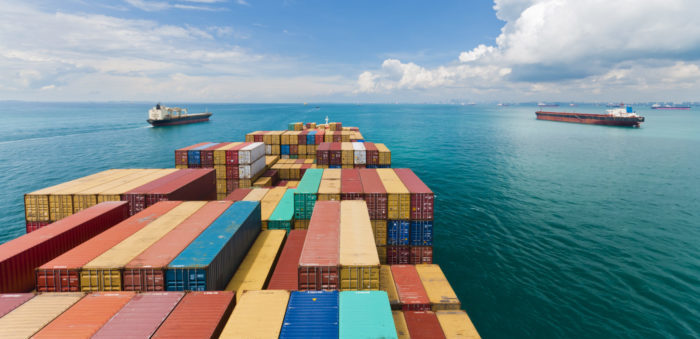Cargo-related container ship fires are on the rise in 2019, with reported incidents averaging every 30 days and bucking the twenty plus year frequency of roughly every 60 days, which highlights the need to galvanise actions to improve safety, according to data provided by insurer TT Club.
While full details of the incidents this year will take time to be confirmed, too many have been reliably reported to concern shipments of charcoal, the Club said, which has proved troublesome for the shipping industry for some time.
As such, the way charcoal is to be treated in the supply chain, and specifically the maritime mode, will again be considered at the IMO’s Sub-Committee on Carriage of Cargoes and Containers (CCC) this month.
A German submission to CCC is recommending that the IMDG Code no longer permit the transport of charcoal as non-hazardous and that additional steps are taken in relation to stowage onboard ships.
Importantly, the submission seeks to delete Special Provision (SP925) -which, where applicable, exempts the shipment from the rigours of the dangerous goods regulations- albeit it proceeds to propose a new Special Provision.
ICHCA, with support from TT Club, agrees with the basic premise that charcoal should always be considered as dangerous and the deletion of the Special Provision, but not the creation of a new one,
…the insurer said.
This discussion has short term impact, since the outcome will be reflected in the forthcoming version of the IMDG Code (Amendment 40-20) that, while only entering mandatory force on 1 January 2022, will be finalised this year.
The current complexity – and concern – in relation to the carriage of charcoal/carbon in containers is set out in the guidelines published by CINS and IG Clubs.
The concerns relating to Special Provisions in general (and SP925 specifically) are raised in a further document that has broad industry support, including TT Club working with ICHCA, submitted by Liberia and no less than seven NGOs.
This addresses the inherent problem of non-declaration and misdeclaration of dangerous goods and proposes a comprehensive review of the maritime SPs in the IMDG Code.
Incident reports demonstrate that the SPs in question have been abused as a basis for exempting shipments from the safety provisions of the Code. While the outcome of such a comprehensive review cannot be fully anticipated, it would be most welcome in reducing areas of uncertainty and opportunities, whether inadvertent or deliberate, that prevent carriers and other stakeholders in the supply chain from taking actions to ensure proper and safe handling and stowage of cargo reflecting the real presented hazards.
Such issues lie at the heart of TT Club’s #Fit4Freight ‘cargo integrity’ campaign, for which TT Club has been shortlisted for the SAFETY4SEA Europort Initiative Award 2019.
While this campaign extends well beyond those goods that are classified as dangerous, the truth remains that dangerous goods, whether declared correctly or not, impose a disproportionate burden on the shipping industry when measured by incident statistics.






























































